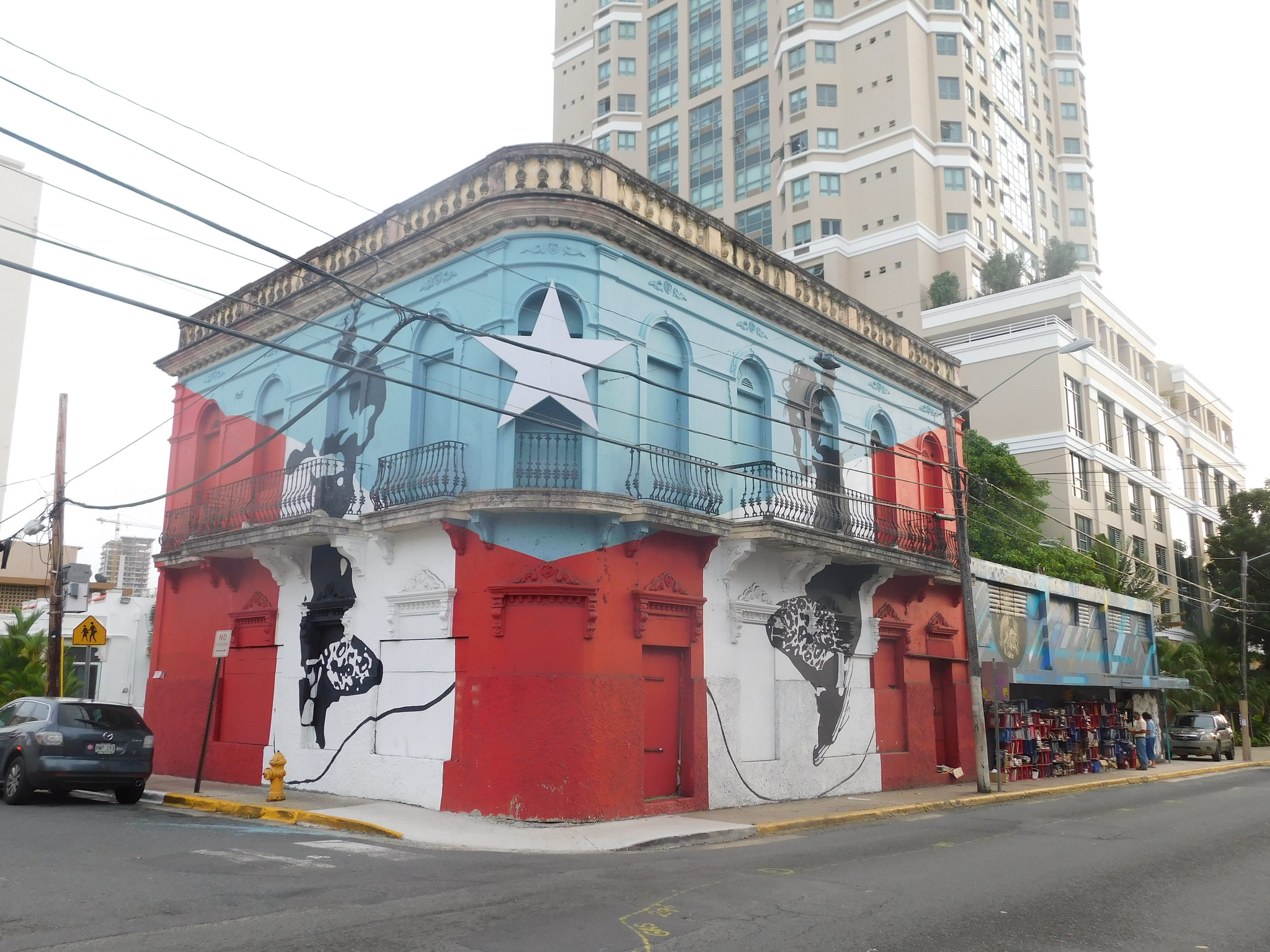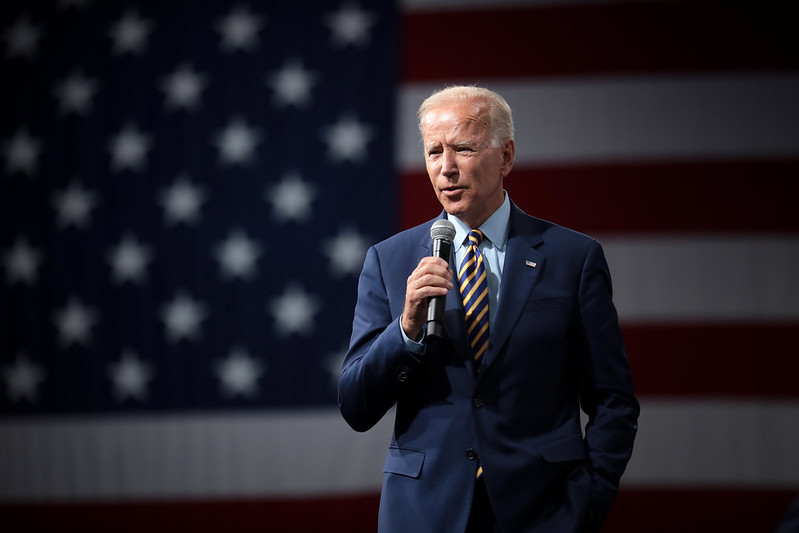- Puerto Rico Flag Building by Jimmy Emerson CC BY-NC-ND 2.0 via Flickr
As an Irish American living in Ireland, seeing an Irish American in the White House is incredibly meaningful. Since he’s come into office, President Biden has frequently cited his Irish heritage. In a recent press conference, when speaking about the issues at the U.S. Mexican Border, Biden referenced his great-grandfather coming to the United States from Ireland on the “coffin ships…because of what the Brits had been doing.” Honestly, seeing the United States President highlight An Górta Mór, or as many Americans know it, the Potato Famine, felt really good. Like many Americans, I am of Irish ancestry. Around 34 million people, or almost 10 percent, of people living in the United States claim Irish ancestry and many of our migration stories are connected to the famine.
It felt like my family story was being told and the U.S. was honouring this Irish relationship and a migration story that was all too common. But what this story conveniently neglects to reflect is the fact that the United States has treated its territories quite similarly to the way President Biden has referred to the British treating theirs. A prime example being the U.S. territory of Puerto Rico.
Puerto Rico is probably the most well-known United States territory, but in fact there are 16! Something I only learned, I am ashamed to say, while researching for this blog. Over two-fifths of all residents of Puerto Rico (43 percent) and over half of children in Puerto Rico (57 percent) lived in poverty in 2018, according to the most recent Census Bureau data. About one-third of all adult residents experience food insecurity, which is defined as a lack of consistent access to adequate food.
Despite these shocking figures, Puerto Rico, like many other U.S. territories, does not have access to the same food assistance programs as other U.S. citizens. Puerto Rico’s nutrition assistance program is called NAP, or PAN for its Spanish acronym and its goal is to help residents of Puerto Rico afford a basic diet. NAP is unique in that it receives a fixed amount of federal funding each year, called a block grant and must stay within this fixed funding level regardless of the level of need. This is in stark contrast to the US citizens’ Supplemental Nutrition Assistance Program (SNAP), which expands and contracts in response to need.
Puerto Ricans were disproportionately struggling long before this pandemic. Puerto Rico was already reeling from the effects of bankruptcy, severe earthquakes, two devastating hurricanes, and delays in rebuilding aid when the COVID-19 pandemic hit. 2017’s Hurricane Maria devastated 80 percent of the crops in Puerto Rico, deeply worsening the hunger crisis that already existed. In May 2020, after two months of lockdown, José Caraballo-Cueto, an economist at the University of Puerto Rico, estimated that the pandemic had driven the island’s unemployment rate to an astounding 46 percent.
The mistreatment of Puerto Rico had been exacerbated by the last administration, but the disrespect of American territories was not unique to President Trump. President Biden campaigned on recovery, renewal, and respect for Puerto Rico, and while there are quite a few pressing matters happening in the States at the moment, the gaps between the U.S. territories and states has only been intensified by this pandemic. Waiting to address these gaps will only cause them to grow further.
An Górta Mór was not just about the blight that led to a potato crop failure, but British government inaction in the face of mass starvation. Subsequent United States governments have consistently and systematically chosen inaction in the face of disaster on the part of its territories—and the situation in Puerto Rico is just one example.
In May 2020, Vermont Senator Bernie Sanders and New York Representative Nydia M. Velásquez introduced the Equitable Nutrition Assistance for the Territories Act of 2020 so that Puerto Ricans and citizens of other American territories, like the American Samoa and the Northern Mariana Islands, can have equal access to the Supplemental Nutrition Assistance Program, a right for U.S. state citizens. When speaking on the act, cosponsor New York Representative Alexandria Ocasio-Cortez said,
“this bill should not be controversial or partisan. The richest country in the world should feed its people. These are Americans – and we must stop treating them as second-class citizens.”
This bill has been introduced to the Senate, but not voted on yet. It will take much more than equal access to SNAP to address the gaps between Puerto Rico and the “mainland” United States, but this would be a crucial step.
Being in Ireland, away from home, has helped me to see the United States much more clearly. And as an Irish American, if Joe Biden is going to draw on rhetoric of An Górta Mór, he should start analyzing the policies and systems that keep the United States territories vulnerable and hungry. I don’t believe that our great-grandparents traveled on coffin ships, only to have their ancestry perpetuate that same systematic oppression that forced them to flee.
- Gina Dorso is a masters student in international peace studies in Trinity College Dublin, originally from New York
Explore more on developmenteducation.ie
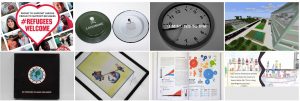
From Nicaragua to Ireland: Fairtrade Coffee and Global Solidarity
Fátima Ismael of Soppexcca, Cathal Murphy from Bewley’s and Fairtrade practitioner Kieran Durnien discuss 20 years of Fairtrade coffee solidarity linking Nicaragua and Ireland.
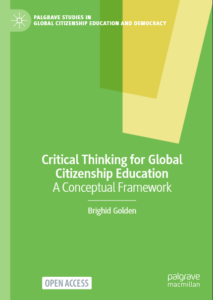
Critical Thinking for Global Citizenship Education
Join Brighid Golden for the launch of her latest book, ‘Critical Thinking for Global Citizenship Education: A Conceptual Framework’
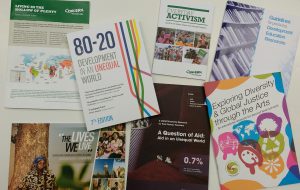
Your voice matters – 2026 user survey open
It’s January, its 2026, and we want to hear what you’d like us to feature or work on in 2026.
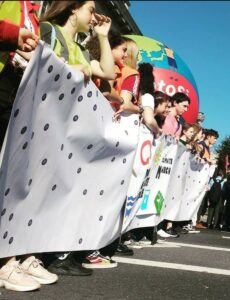
Calling Post Primary Teachers – Survey Participation Request
Your voice is vital in shaping the future of education for sustainable development in Ireland. Join a national survey for post primary teachers in October, led by DCU researcher Valerie Lewis

Webinar: Science for development on World Food Day
The webinar will feature YSTE projects, from Santa Sabina Dominican College (Dublin), Moate Community School (Westmeath) and CBS Thurles that focussed on nutrition and better food production, with Self Help Africa’s nutrition and gender specialist in Ethiopia, Sara Demissew.
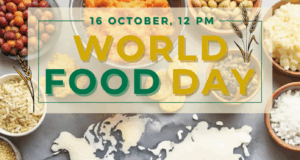
Student & teacher webinar: Food, hunger and SDG 2
Join the World Food Day webinar for post primary school students and teachers which will explore SDG 2: Zero Hunger.

